Hopi Tribe Passes Resolution in Support of America’s Red Rock Wilderness Act
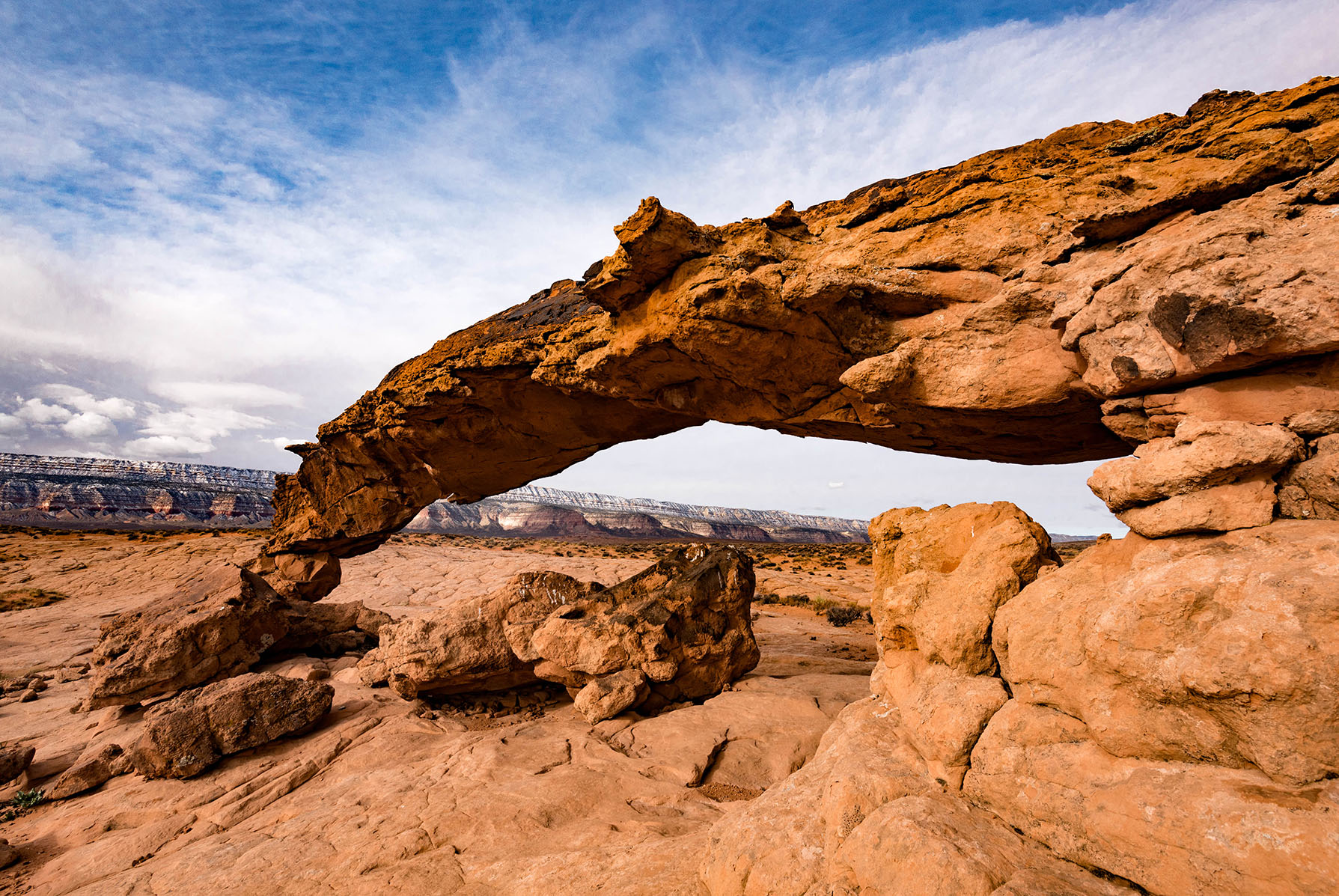 The Hopi Tribal Council recently passed a resolution formally endorsing America’s Red Rock Wilderness Act, the bill to protect more than 8 million acres of federal public land in Utah as wilderness.
The Hopi Tribal Council recently passed a resolution formally endorsing America’s Red Rock Wilderness Act, the bill to protect more than 8 million acres of federal public land in Utah as wilderness.
Passage of the resolution was proposed and supported by the Hopi Cultural Preservation Office (HCPO) and the Hopi Cultural Resource Advisory Task Team. In a historic first, the resolution was written in the Hopi language, the first time the Tribal Council has passed a resolution in Hopi since the contemporary Hopi government was established in 1936. Typically, resolutions and other official documents from the Hopi Tribal Council are written in English.
“Hopi peoples have lived in the canyons and mountains and on the mesas included in America’s Red Rock Wilderness Act since time immemorial, and these areas comprise one of the most significant cultural landscapes in the United States,” said HCPO Director Stewart Koyiyumptewa. “The passage of this resolution in Hopi is an assertion of our tribal Sovereignty, and a reminder that our relationship with the landscapes that would be protected by America’s Red Rock Wilderness Act precedes both the United States and the state of Utah.”
America’s Red Rock Wilderness Act was reintroduced in the U.S. Congress last week by Senator Dick Durbin (D-IL) and Representative Melanie Stansbury (D-NM). SUWA is grateful for the Hopi Tribal Council’s support of this important legislation.
Photo © Ray Bloxham/SUWA
SUWA and Partner Reach Settlement Requiring BLM to Abandon Rule Allowing Destruction of Pinyon-Juniper Habitats
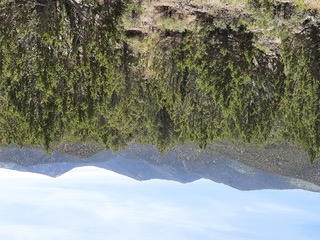 SUWA and Defenders of Wildlife have reached a court-approved settlement agreement requiring the Bureau of Land Management (BLM) to abandon a decision authorizing extensive destruction of native pinyon pine and juniper habitats across the American West without requiring prior analysis and public disclosure of possible environmental impacts.
SUWA and Defenders of Wildlife have reached a court-approved settlement agreement requiring the Bureau of Land Management (BLM) to abandon a decision authorizing extensive destruction of native pinyon pine and juniper habitats across the American West without requiring prior analysis and public disclosure of possible environmental impacts.
The BLM adopted the so-called “Pinyon-Juniper Categorical Exclusion Rule” in December 2020 at the end of the Trump administration. The rule authorized extensive destruction of native pinyon pine and juniper without environmental review. These projects could be up to 10,000 acres in size with no limit on the number of these projects the agency could approve.
As a result of the settlement, the BLM must conduct an environmental review and seek public comment on pinyon-juniper deforestation projects. In doing so, the agency must consider how a project will affect native ecosystems, including evaluating how it will impact at-risk plants and animals, sensitive soils, and our climate.
>> Click here to read our full press release
Photo © Judi Brawer/SUWA
SUWA Successfully Challenges Lithium Mining Proposal Near Canyonlands National Park
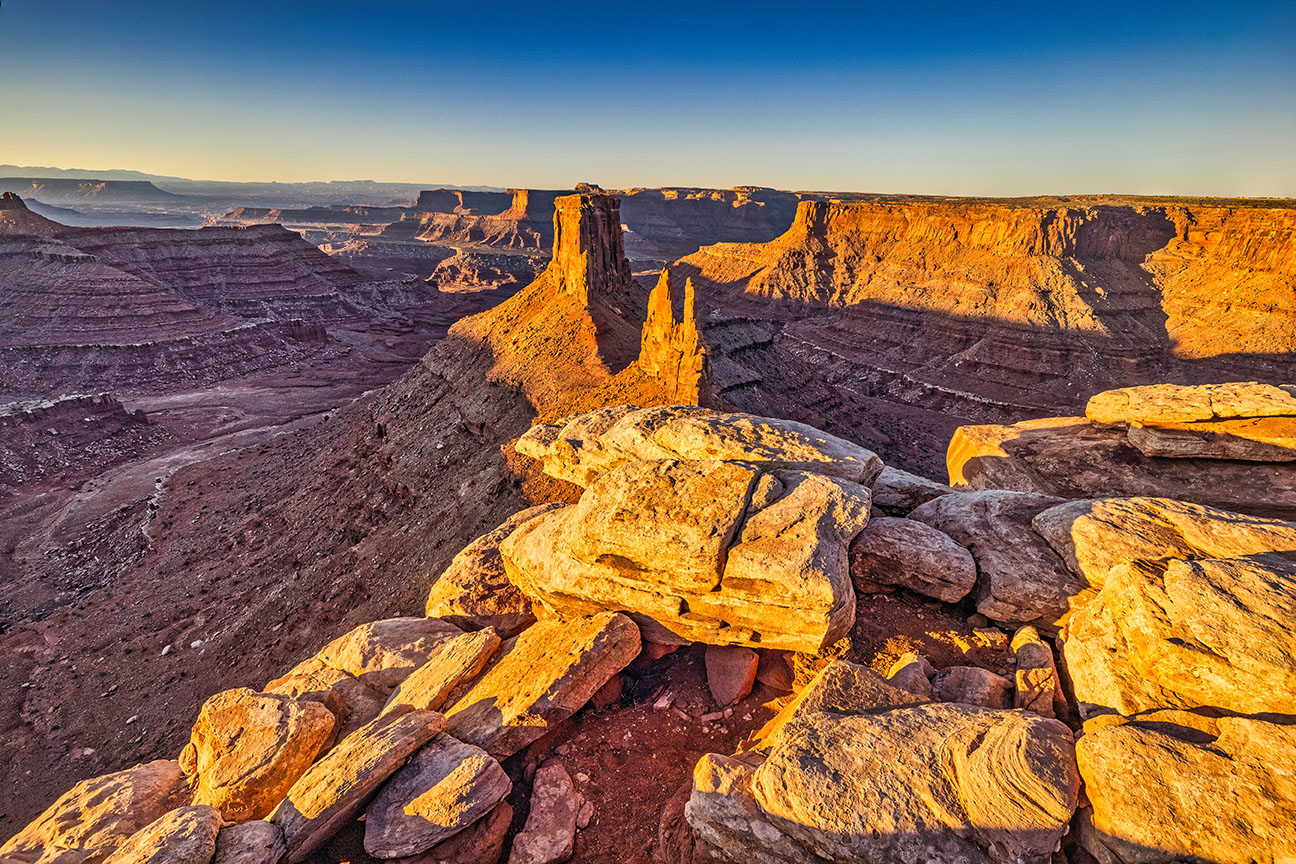 In another victory for the redrock, SUWA prevailed in our appeal of a Bureau of Land Management (BLM) decision to approve two lithium wells along State Route 313, a designated scenic byway and the main access road to Dead Horse Point State Park and the Island in the Sky unit of Canyonlands National Park. The wells would have been visible from both parks and the scenic byway.
In another victory for the redrock, SUWA prevailed in our appeal of a Bureau of Land Management (BLM) decision to approve two lithium wells along State Route 313, a designated scenic byway and the main access road to Dead Horse Point State Park and the Island in the Sky unit of Canyonlands National Park. The wells would have been visible from both parks and the scenic byway.
The victory grants a reprieve to one of Utah’s most popular and scenic landscapes. The more than a million visitors per year who travel the Dead Horse Mesa Scenic Byway come to appreciate this remarkable redrock landscape, not to hear and see industrial development.
Lithium is an essential resource in the transition to a greener energy future, but its extraction must not come at the expense of visually scarring magnificent scenic landscapes, nor should it escape comprehensive analysis of its environmental impacts, especially when it comes to water. Lithium mining consumes large quantities of this precious resource, and the BLM will now have to analyze and disclose this fact in light of the ongoing drought and climate crisis wreaking havoc on the Colorado Plateau.
>> Click here to read our full press release
Photo: Dead Horse Point (Adobe Stock)
Recreation Bill Prioritizes Use Over Resource Protection
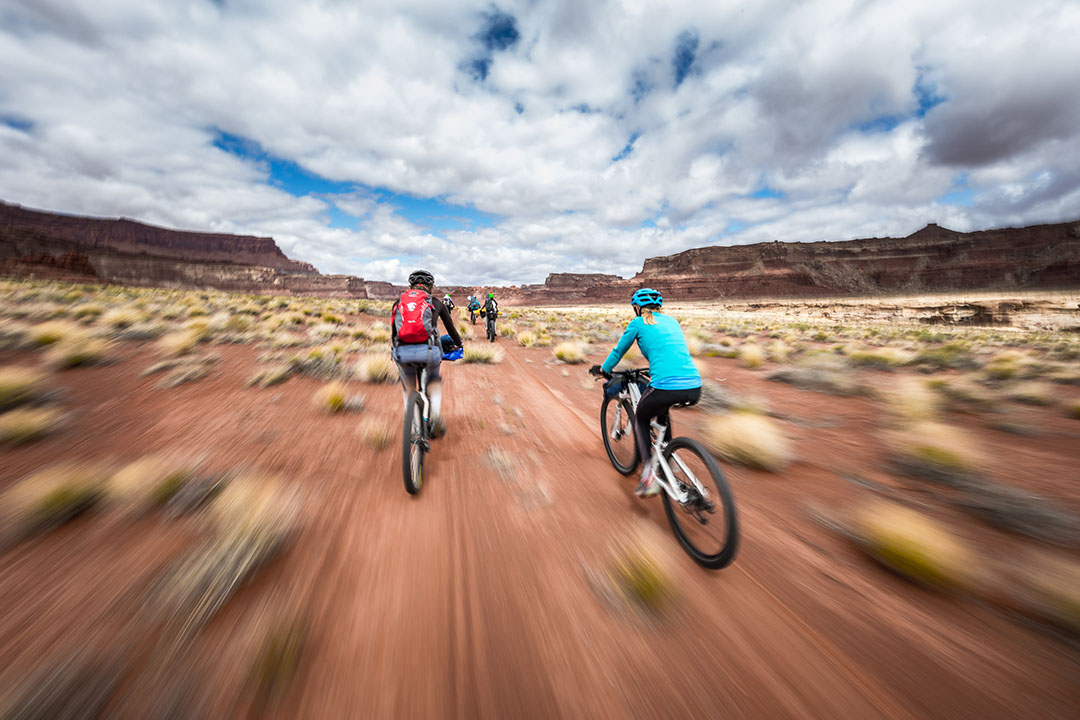 In Utah and elsewhere, rapidly increasing public lands recreation is resulting in natural and cultural resource damage, and the science is clear that dispersing such use to less visited and undisturbed locations is not an effective management strategy. By their very nature, these places lack adequate infrastructure to handle high visitation levels. Unfortunately, America’s Outdoor Recreation Act of 2023 (AORA), recently introduced by Senators Manchin (D-WV) and Barrasso (R-WY), includes several provisions that would require agencies to direct use into just such areas.
In Utah and elsewhere, rapidly increasing public lands recreation is resulting in natural and cultural resource damage, and the science is clear that dispersing such use to less visited and undisturbed locations is not an effective management strategy. By their very nature, these places lack adequate infrastructure to handle high visitation levels. Unfortunately, America’s Outdoor Recreation Act of 2023 (AORA), recently introduced by Senators Manchin (D-WV) and Barrasso (R-WY), includes several provisions that would require agencies to direct use into just such areas.
Also worrisome is the bill’s treatment of special recreation permits (SRPs), which are required of commercial, competitive, or large group activities. The bill defines “large groups” as more than 75 people for both motorized and human-powered activities. By contrast, the Utah Bureau of Land Management (BLM) typically requires permits for groups of more than 12 or 25 people, depending on location and activity.
The permitting process enables the BLM to consider the proposed activity and location, specify group size limits, require minimum impact practices (for managing human waste, as an example), prevent user conflicts, and ensure public safety and resource protection. AORA would remove this essential touchpoint between agency and permittee, thereby eliminating agency review and commonsense safeguards for groups as large as 75 people.
SUWA is closely tracking this bipartisan legislation. At the same time, we are working with lawmakers on improvements to ensure that land managers have the necessary tools to protect natural and cultural resources while providing high-quality experiences for a growing and increasingly diverse user base.
Photo © Whit Richardson
Stewardship Projects Are Filling Fast!
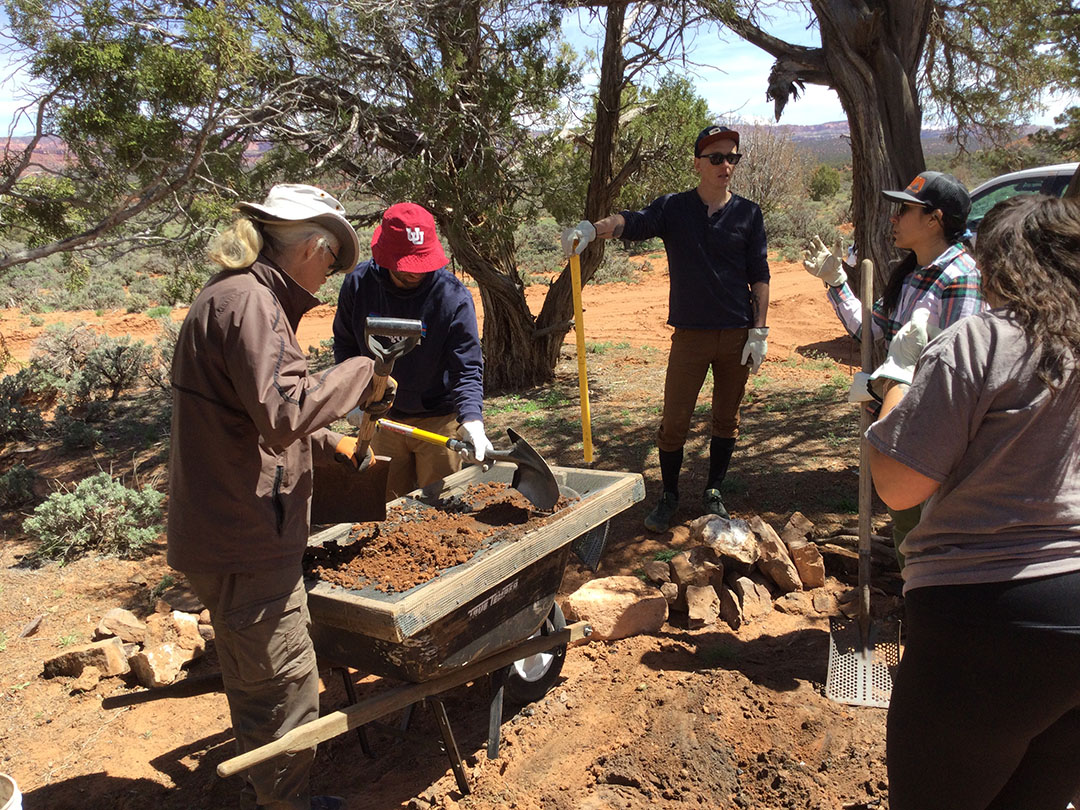 Spring wildflowers are blooming in canyon country, creeks are rushing with the runoff of a record snow year, and our 2023 stewardship season is off to a terrific start. We invite you to join us as we travel far and wide across Utah’s public lands to preserve and protect the wild places we all love.
Spring wildflowers are blooming in canyon country, creeks are rushing with the runoff of a record snow year, and our 2023 stewardship season is off to a terrific start. We invite you to join us as we travel far and wide across Utah’s public lands to preserve and protect the wild places we all love.
Trips are filling fast, but spaces often open up and our wait lists are quite effective. Take a look at our complete volunteer project calendar, peruse what we’ve scheduled, and don’t hesitate to email us at volunteer@suwa.org if you have any questions. Found a trip that suits your interest? Click here to submit your application today.
Photo © Judi Brawer/SUWA
Become a Sustaining Member with SUWA’s Monthly Giving Program
If you’d like a convenient, hassle-free way to protect the redrock, our monthly giving program is for you. Whether you’re a current member or considering becoming one, monthly giving of any amount is easy and secure, includes all the benefits of membership, and provides SUWA with the reliable, year-round funding necessary to fight current and future threats to our public lands. Is protecting the redrock worth $5 or $10 a month to you? That’s only $60 or $120 a year and goes a long way toward keeping your public lands wild.
To become a sustaining member today, use our convenient online monthly giving form: suwa.org/monthly. Thank you!

